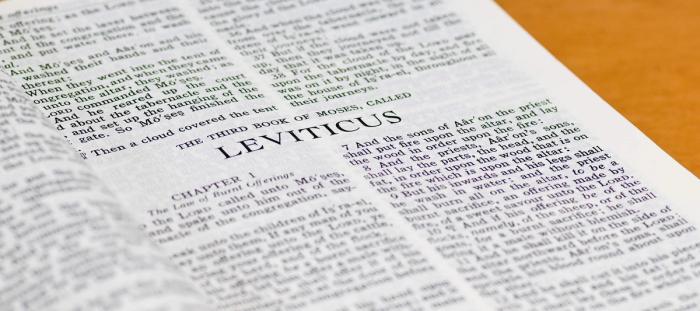When people read or think about the Old Testament, it’s easy to pass over Ruth. It’s hidden between much larger, more dramatic books. Before Ruth, you can read the depressing book of Judges, which shows the descent of God’s people and the depths of human nature. After Ruth, you can read 1 Samuel, which starts with a miraculous birth and gives rise to the greatest king in Israel: David. With these bookends on either side, why should you care about a four-chapter-long book about a family and their wanderings?
Perhaps because that little book wouldn’t be there without God’s inspiration, which means that like all of God’s word, it’s incredibly important. Have you ever wondered how you could get from the chaos of Judges—where everyone does what’s right in his own eyes—to the rise of the great king? The book of Ruth will let you know. Amidst the heartbreaking failures and sweeping battles, the camera rests upon a little, ordinary family. Why? Why should we stop amidst the bustling inns to examine this Old Testament manger?
Ruth Points Us to Christ
As with all of Scripture, Ruth directs our eyes to the hero of history: Jesus Christ. All of Scripture does so in different ways, however, and the way in which Ruth points to Jesus is especially personal and intimate. The story begins in the time of the judges, with all its attendant chaos. There, we meet a woman named Naomi who leaves Bethlehem (literally, “house of bread”) with her family during a time of famine for Moab—a land condemned by God for not offering his people bread in the wilderness. The ensuing story is heartbreaking for Naomi, who must learn about hope amidst her hopelessness.
The one who would most vividly demonstrate this to Naomi is Ruth the Moabitess—a suffering servant who pledged to identify with her mother-in-law, even to the point of death. But Ruth has a story of her own. She belongs to the people condemned by God, but she believes. She treks back to Bethlehem with Naomi, hoping beyond hope that her homeless existence would find a home in the grace of God. It is back in Bethlehem that Ruth meets Boaz and enjoys promises of no more hunger, no more thirst, and no more tears—in a scene that movingly reminds us of God’s assurances for his people at the end of time.
In Boaz, we see the heart of God as he looks past Ruth’s illicit Moabitess reputation and sees a bride—both of God and later of Boaz. After all the courageous acts of faith by Ruth, Boaz is the one who will work tirelessly for her redemption while she rests upon his work (and the God working behind the scenes). Through another acting on their behalf, Naomi finds her hope and Ruth finds her home.
In the final chapter, the gathered assembly celebrates this act of redemption, but they announce something startling to Naomi: “Blessed be the LORD, who has not left you this day without a redeemer … for your daughter-in-law who loves you, who is more to you than seven sons, has given birth to him” (italics mine). Boaz is not ultimately the source of redemption, but the child born to Ruth and for the sake of Naomi. A child who would continue a line that stretches from the beginning of human history—a line that would continue through King David and later to the king of kings, Jesus Christ.
The story of Ruth then is the story of salvation—for this simple, suffering family, for God’s people of old, and for us. Naomi and Ruth found their place in the long line of God’s people, a place commemorated for Ruth in the first chapter of Matthew’s Gospel. Through this seemingly unimportant story, God’s people of old would be carried by the promised line from the chaos of Judges to the king in 1 Samuel. For you and me, we can learn anew that salvation is not wrought through empires but through an incredible Savior. The same Savior who looked upon Naomi and Ruth through eyes of Boaz looked upon us, too. He did the work we couldn’t do for our redemption, that we might finally find rest.
We just released a brand new Bible study on the book of Ruth, written by biblical scholar Rita Cefalu. You can check it out here.






